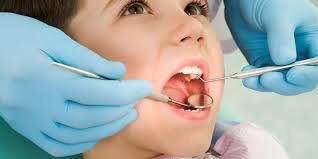
16 Jan Porcelain Crowns – A complete guide to All-Ceramic Crowns
Dental crowns are a common form of dental restoration used to protect and restore damaged teeth. Different types of dental crowns like porcelain crowns, in particular, are popular for their natural appearance and durability. This complete guide will explore crowns made like porcelain crowns, including their types, procedure for placement, cost, the process to get a dental crown and the process to prepare your tooth, and essential dental care.
Understanding Porcelain Crowns
Porcelain crowns, also known as all-ceramic crowns, are dental caps placed over a damaged or decayed tooth to restore its function and appearance. Unlike other types of crowns, such as metal or gold crowns, porcelain crowns closely resemble natural teeth in color and translucency, making them a popular choice for cosmetic dental procedures.
All-Ceramic crowns are particularly suitable for individuals who need a dental crown on their front teeth due to their ability to blend seamlessly with natural teeth, providing an aesthetic and long-lasting solution for tooth restoration. These crowns, which include different types of dental crowns like all-porcelain crowns, can also be used in the place of veneers for cosmetic enhancement.
With proper care, different types of dental crowns, including porcelain crowns, can last for many years, making them a reliable option for restoring both the function and appearance of a damaged tooth.
Types of Dental Crowns
There are various types of dental crowns available, each with its own set of advantages and considerations. Traditional options include porcelain fused to metal (PFM) crowns, ceramic crowns, and gold alloy crowns, each made within the dental lab.
Porcelain fused to metal crowns, or PFM crowns made, were once commonly used due to their strength and durability, especially before the advent of all-porcelain crowns. However, they are less favored in cosmetic dentistry due to the visible metal margin that can affect aesthetics.
On the other hand, zirconia crowns have gained popularity for their strength and natural appearance. Zirconia crowns offer several benefits, including biocompatibility, durability, and resistance to wear, making them an ideal choice for dental restorations, especially for back teeth.
Procedure for Getting a Porcelain Crown
The process of getting a porcelain crown typically involves multiple visits to the dentist. Firstly, the tooth is prepared by removing any decay and shaping it to accommodate the new crown. A temporary crown may be placed while the permanent crown is being fabricated in a dental laboratory.
Once the permanent crown is ready, it is placed over the prepared tooth and checked for fit and bite alignment. With proper care and regular dental visits, porcelain crowns can be a long-term solution for dental restoration.
Cost and Durability of Porcelain Crowns
Porcelain crowns can vary in cost depending on factors such as the complexity of the procedure, the materials used, and the location of the dental practice. On average, porcelain crowns, especially ones made in a dental lab, may cost more than metal crowns due to their natural appearance and aesthetic appeal.
The longevity of porcelain crowns, including those received as a dental implant, is influenced by various factors, including oral hygiene, the process to prepare your tooth, the patient’s bite and tooth structure, and the quality of the dental restoration. With the right care, porcelain crowns can be a durable and reliable option for restoring damaged teeth, just like getting a dental crown.
Essential Dental Care for Porcelain Crowns
Regular dental care is essential for maintaining the health and longevity of porcelain crowns. This includes practicing good dental hygiene, such as brushing teeth and flossing regularly, in order to maintain crowns made at the dental lab, and attending regular dental check-ups and cleanings.
Individuals with porcelain crowns, including all-porcelain crowns and those made at the dental lab, should also be mindful of habits that may cause damage to their crowns, such as biting hard objects or grinding teeth. Additionally, early detection and treatment of any potential issues, such as tooth decay, can help preserve the integrity of the porcelain crown.
While porcelain crowns are a durable and effective solution for dental restoration, individuals should be aware of potential risks and complications, such as sensitivity or the development of cracks in the crown. Any concerns about your dental implant or crowns should be promptly addressed with a qualified dentist to ensure the long-term success of the dental restoration.
If you have any questions, please do not hesitate to contact us at (972) 727-0011. Remember to visit your Allen Pediatric Dentist for any dental emergency care for your children.
